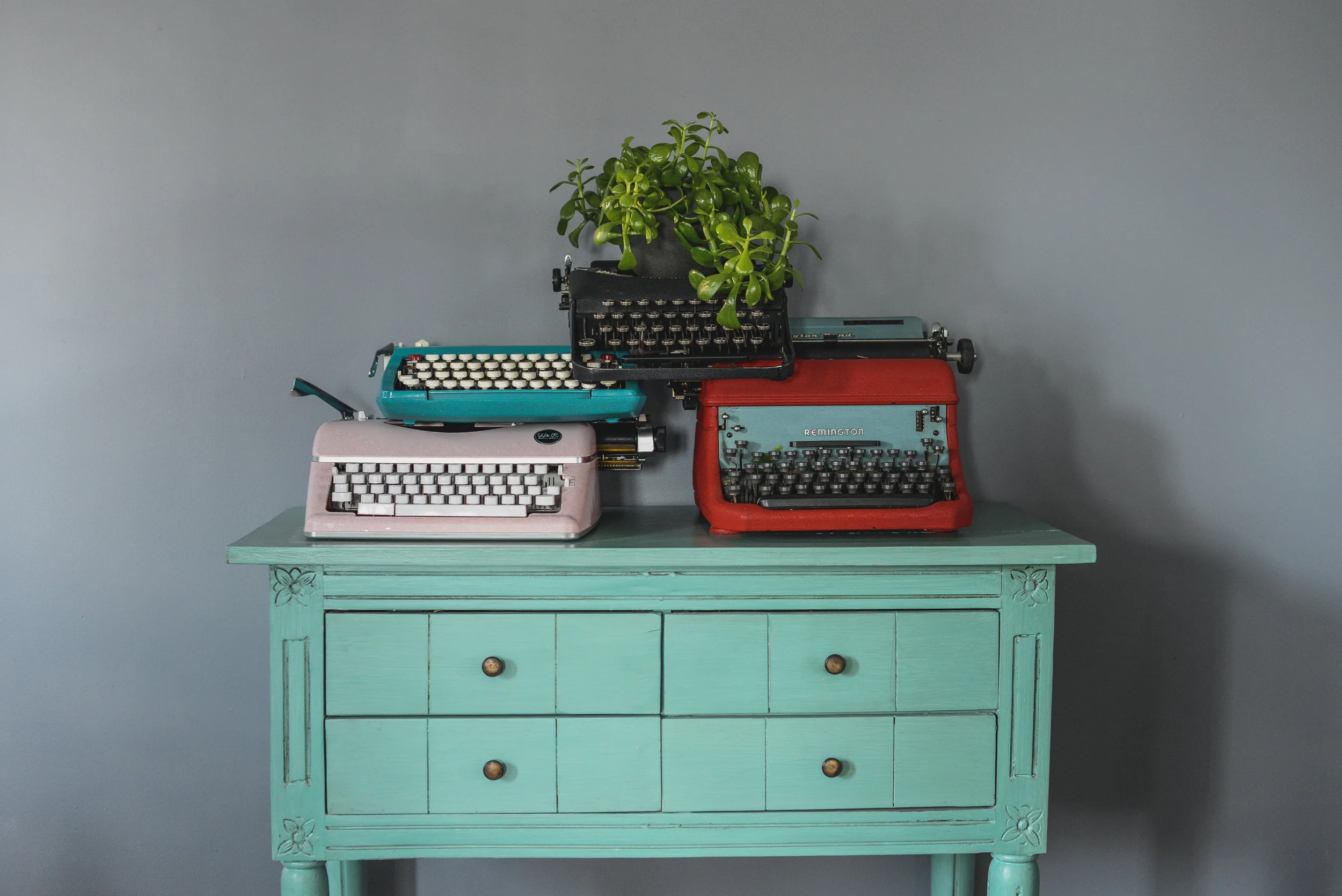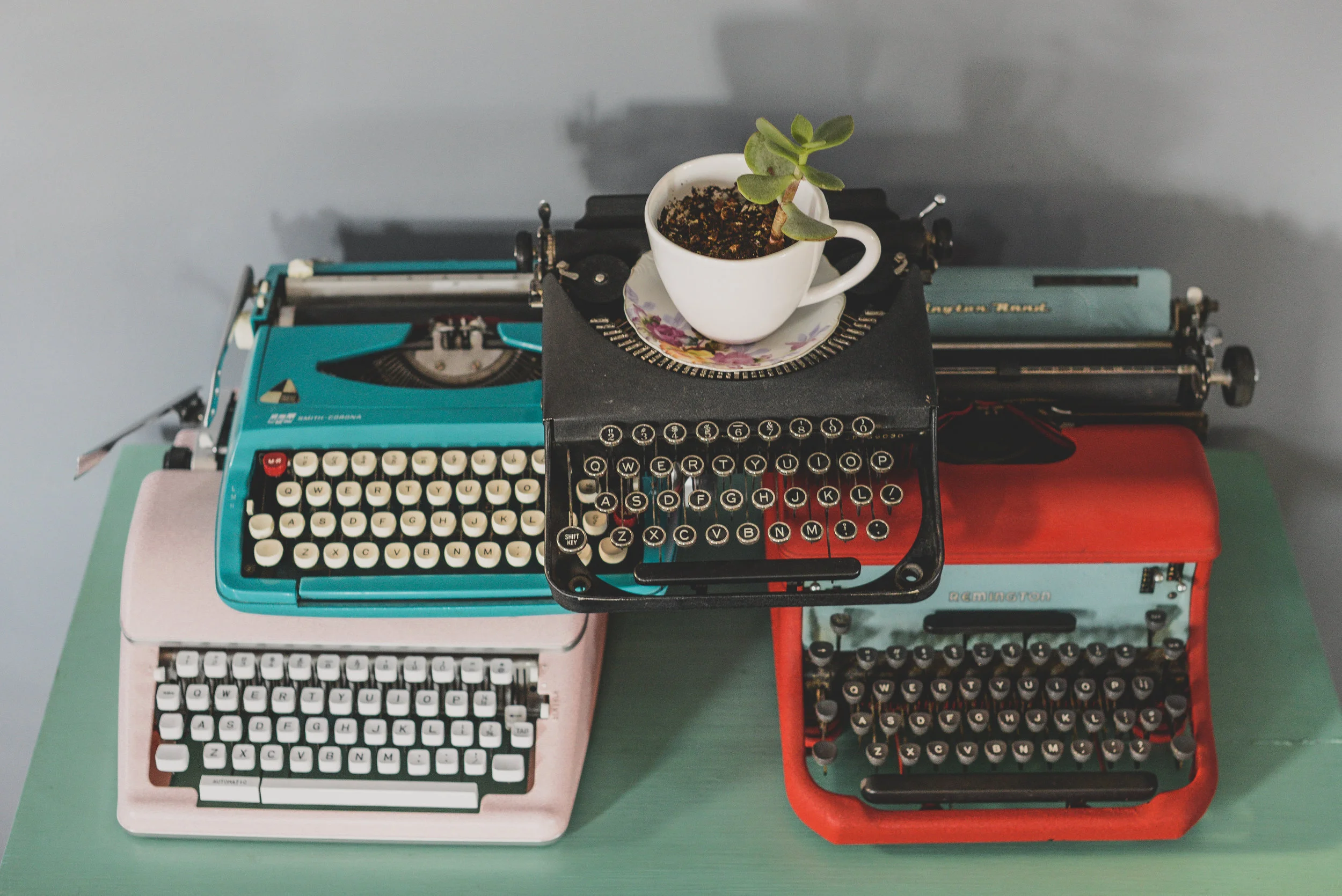My Most Intimate Friend
The character, Angela, from Clarice Lispector's A Breath of Life, says: “My most intimate friend? A typewriter. There's a pleasant taste in my mouth when I think.”
And in another book, Crônicas, Lispector says:
“Ah! there are certain days when everything becomes so dangerous. But the typewriter goes faster than my fingers. The typewriter writes inside me. And I have no secrets apart from mortal ones.”
In the same book, Lispector says, “My typewriter carries on typing. It types out the following: anyone who achieves a high level of abstraction has reached the frontiers of madness.”
Writers are particular and peculiar people, some would use the word eccentric, some would say strange. They develop odd habits and rituals around their writing process. I have an intense friendship with my iMac, I admit. This is my second one. The summer, years ago, that my first iMac crashed, as computers will, I also developed Bell's Palsy. I don't think this is entirely coincidental.
In her journal, At Seventy, May Sarton writes:
“I spent yesterday morning getting a new typewriter. And at last I can write fast with a light touch. It is a Smith-Corona portable, not electric. I had begun to feel as though I had lost the use of my hands – but just now the carriage would not stay put and I have been fiddling with it for about half an hour. These are such pressured times that endless frustration with a machine is hard to bear.”
In previous times, writers will have spent a lot of time fiddling with fountain pens and quills. And even now, we struggle and complain about our computers. The time we waste on the maintenance of our machines is hard to bear. Yet, they are an extension of our writing process, and therefore somehow an extension of us. The guts of them are of great concern.
There's the famous short chapter in Annie Dillard's A Writing Life, where she talks about turning her back on her typewriter, and leaving the room. Upon return:
“I saw at once that the typewriter was erupting. The old green Smith-Corona typewriter on the table was exploding with fire and ash. Showers of sparks shot out of its caldera – the dark hollow in which the keys lie. Smoke and cinders poured out, noises exploded and spattered, black dense smoke rose up, and a wild, deep fire lighted the whole thing. It shot sparks.”
The volcanic display subsides, and the next day she cleans it up, it's fine. She says, “I have had no trouble with it since. Of course, now I know it can happen.”
I do firmly believe that the bare minimum necessary for writers is not a fancy room, and not a fancy computer to write on, but just a serviceable notebook and an adequate pen. Pair this with a sturdy table and a marginally comfortable chair and you should be good to go. If you want to write, these will suffice. That said, if you're to settle into the writing life, really settle into it, a few comforts and quirks and rituals are not a bad thing.
If my computer were to crash tomorrow, I don't imagine half my face would become paralyzed. But then again, I know it can happen.
I know it's extreme, but I still like to consider the words of Hélène Cixous in her book, First Days of the Year, where she says:
“One can die from being unable to write in time the book one has in one's body.”
I will also admit that some days, I think, it's really not that extreme at all.







